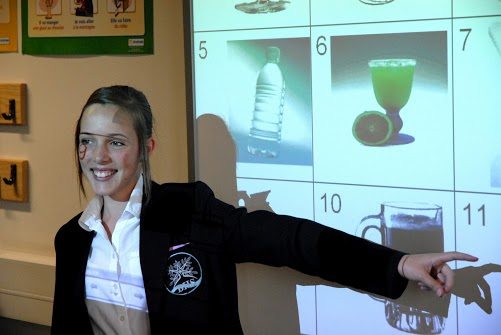


Thornier bits of French grammar: The articles
Anthony Lodge, Emeritus Professor of French (St. Andrews University) In staff common-room discussions about those parts of French grammar which cause the most difficulty for English-speaking learners, attention swiftly focusses on past participal agreements and on the...
Immersion language learning: a game changer?
Kathy Wicksteed, Association for Language Learning Council member and coordinator of FLAME Mysterious ways I can’t remember when I first became interested in CLIL,[ref]It is difficult to choose vocabulary to refer to the teaching of non-language subject content...
Grammar and Communication: Friends not Foes
Martine Pillette (Moulton, Northamptonshire) THE GRAMMAR AGENDA In the days of O level (GCE Ordinary level was introduced in Britain in 1951) communication was not at the heart of the MFL agenda. The emphasis was much more on linguistic competence than on performance....
Le tableau numérique intéractif (TNI) dans les salles de classe du 21ième siècle
Christine O’Leary (Sheffield Hallam University) INTRODUCTION L’utilisation du tableau numérique intéractif (TNI) doit tenir compte de l’évolution des pratiques pédagogiques, en particulier l’approche actionnelle. Celle-ci exige une méthodologie active centrée sur ...
